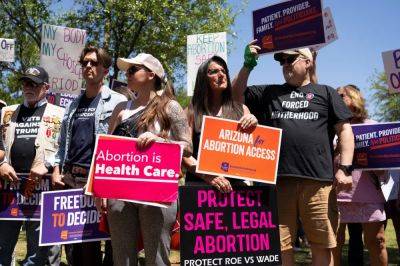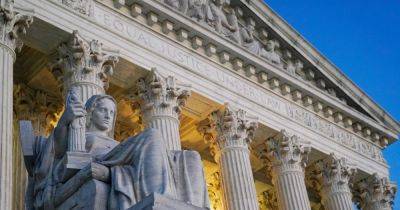‘Unborn Child’ or ‘Fetus’: Parsing Word Choices on Abortion at the Supreme Court
On its face, the case argued before the Supreme Court on Wednesday was about whether doctors in Idaho have the obligation to provide abortions to women facing emergency risks to their lives.
But a difference in word choice by the justices and the lawyers revealed a more fundamental debate, one that goes straight to the ultimate goal of the anti-abortion movement.
The lawyer for Idaho and the conservative justices including Samuel A. Alito Jr., who wrote the majority opinion overturning Roe v. Wade, employed the term “unborn child,” a term used in the federal law at issue. The lawyer for the Biden administration tended to say “fetus.”
It was not merely a matter of semantics: Anti-abortion groups argue that life begins at conception. They have long pushed to establish so-called fetal personhood laws, granting fetuses the same legal rights and protections as any person, in the hopes that it would establish that abortion at any point in pregnancy is murder.
Roe v. Wade stood in their way for five decades, prohibiting states from banning abortion before fetal viability, or roughly 24 weeks. But since the Supreme Court overturned that decision in June 2022, laws establishing fetal personhood have taken effect in Georgia and other states. And anti-abortion lawmakers in Congress and in state legislatures have pushed other measures that establish fetal personhood through a variety of means: giving tax credits for fetuses, for example, or requiring child support payments beginning at conception.
Legal scholars warn that laws establishing fetal personhood would go farther than even existing abortion bans, ruling out all or most of the exceptions that those bans allow. If life begins at conception, that would include pregnancies that







